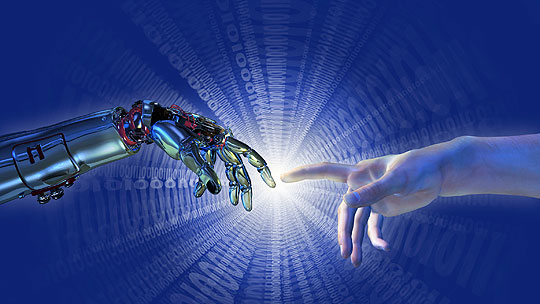
Information and communication technologies (ICT) are now an integral part of our environment and are among the most important drivers for innovation in many industry sectors. Whether complex control technologies in the field of machine tools, fly-by-wire systems in the aircraft industry or intelligent components in modern cars, everyday life without ICT is no longer conceivable. Moreover, the contribution of ICT to value creation in the production of consumer and industrial goods will continue to grow.
One of the consequences of the digitalization of the economy is a complete or partial replacement of established technologies. ICT solutions can, for example, take on functions that have been provided for by other technologies and replace them completely. A second possibility, one that is less radical but equally significant, is the addition of new functions to products through the integration of ICT components, with older technologies becoming less important as a result.
Such changes are known as technological discontinuities or leaps. The jump to a new technological path is attended by a range of opportunities for business, but poses significant challenges as well.
However, despite their undoubted importance, ICT are not the universal solution to every innovation challenge, and should not be overrated, especially given the speed at which they are developing. Many experts still see a huge need for further research in the field of ICT to realize the manifold visions of a digital world.

